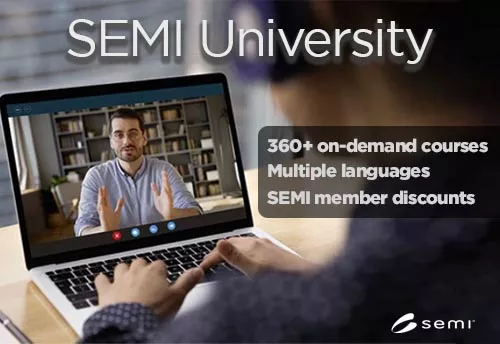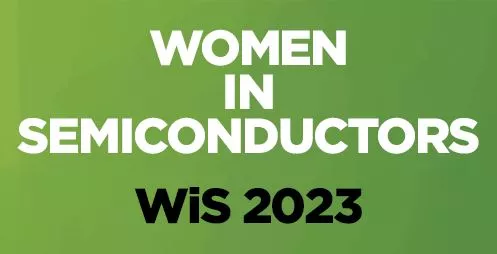
As the global semiconductor industry homes in on $1 trillion in revenue by 2030, the talent shortage persists with chip companies struggling to recruit the workers essential to reaching that milestone and making good on the promise of technologies including artificial intelligence (AI), Internet of Things (IoT), 5G, autonomous driving, and high-performance computing (HPC).
Nowhere is the industry’s workforce challenge more stark than in Taiwan as it faces a growing shortfall of industry workers. According to the results of a recent survey by Taiwan’s 104 Job Bank, the island’s chip sector will face a shortage of a staggering 37,000 workers come June 2023, with unfilled roles across key areas including IC design, IC layout, R&D, manufacturing process and equipment.
Behind Taiwan’s dearth of skilled talent are factors such as its declining birth rate, intensifying international competition for workers, and a falling number of college students pursuing degrees in science, technology, engineering, and mathematics (STEM) disciplines. Forces including the chip shortage, the redrawing of global supply chains, and geopolitical conflicts are also playing a part.
Chipmakers are competing for semiconductor engineers and technicians by raising salaries, relaxing job requirements and have even targeting non-traditional cohorts – students with liberal arts backgrounds, graduates of vocational programs, and women.
![]() To help turn the tide, SEMI continues to work tirelessly to bring the industry, government, and academia together to promote semiconductor industry talent development. In a series of workforce development seminars at SEMICON Taiwan 2022, representatives from prominent tech players discussed key issues including the cultivation of technical talent, woman in leadership, and diversity and inclusion. Their aim: To encourage more students and job seekers to explore semiconductor industry careers.
To help turn the tide, SEMI continues to work tirelessly to bring the industry, government, and academia together to promote semiconductor industry talent development. In a series of workforce development seminars at SEMICON Taiwan 2022, representatives from prominent tech players discussed key issues including the cultivation of technical talent, woman in leadership, and diversity and inclusion. Their aim: To encourage more students and job seekers to explore semiconductor industry careers.
Vocational Programs Emerge as New Source of Chip Industry Talent
The 104 Job Bank survey highlighted that many open roles in Taiwan’s semiconductor industry are at the entry level, with the number of positions requiring only a high-school diploma increasing 133% over the past 20 years as the number of chip sector employers rose 55% over the same period. Even so, nearly 10,000 of those roles are unfilled today despite rising salaries. In a bid to fill the growing gap, major domestic players are targeting technical and vocational students right.
Speaking at SEMICON Taiwan 2022, Chin-Wei Ko, Deputy Director General of the Department of Technological and Vocational Education in the Taiwan Ministry of Education, stressed that policymakers continued to enact regulations last year to help strengthen ties between the chip industry and academia, grow Taiwan’s talent pipeline, spur innovation of technologies, and accredited five new semiconductor colleges.
Ko said the ministry will continue to restructure vocational programs to improve hands-on student learning in order to better meet the chip sector’s workforce needs. He also encouraged companies to consider hiring more vocational talent as part of efforts to diversify their talent pool.
To reach more students in rural areas, SEMI, the TSMC Charity Foundation and 104 Job Bank developed a plan for semiconductor companies to revisit their labor costs and restructure roles in an effort to attract more vocational talent to help fill low- to medium-skill jobs while creating more opportunities for them to establish rewarding career paths.
SEMICON Taiwan 2022 workforce development participants (left to right): Willis Lin, Principal, National Chia Tung Agricultural Vocational Senior High School; Dr. Victor Chung , Vice President, Kun Shan University; Jin-Wei Ke , Deputy Director, Department of Technical and Vocational Education, MOE; Sophie Chang , President, TSMC Charity Foundation; Terry Tsao , Global Chief Marketing Officer and President of Taiwan, SEMI; Vickie Chuang, Director, Talent Acquisition, TSMC; Spring Wang, Chief Career Education Officer, 104 Corporation; Rita Chang , Vice President of CSR Department and CMO, 104 Corporation.
Women Key in Filling Talent Gap
Industry surveys show that up to 80% of jobs in the next 10 years will require STEM talent, yet women account for only 30% of the STEM workforce worldwide despite gender equity gains in recent years.
At SEMICON Taiwan 2022, Connie Chang, Director of the Department of Overall Planning on the National Development Council, opened the Women in Semiconductors (WiS) seminar by underscoring that both men and women should not let stereotypes limit their career choices. She also urged young female students to consider new career possibilities in the chip industry while striving to increase their knowledge at every opportunity, identify their strengths, and appreciate the capabilities of other people.
The Taiwan government should do its part to “support policies that help eliminate the gender gap by encouraging more equitable workplaces,” she said.
Jenny Bloomfield, Representative in the Australian Office, Taipei said that Australia has worked to remedy its well-entrenched gender imbalances in the workplace through new education and women's empowerment programs aimed at mitigating organizational and structural inequalities and increasing job opportunities for women. The office is also raising the visibility of female role models in STEM fields – women ambassadors in STEM who can promote, mobilize, and help attract young women from all walks of life to study or work in STEM fields.
Women in Semiconductors seminar attendees (first row, left to right): Mavis Ho, General Manager, Greater China and SEA, imec; Winnie Chou, Global Business Communications Leader, Interconnect Solutions, DuPont; Yvie Tai, Director, Business Development, Qualcomm; Jenny Bloomfield, Representative, Australian Office Taipei; Connie Chang, Director, Department of Overall Planning, National Development Council; Annie Chou, Director, Spares Operation & Logistics, Lam Research; Jessie Liu, Senior Director, North Asia, Human Resources Business Partner, Micron; Karen Yang, Director, Human Resources, Intel; Dr. Lisa Chen, Senior Manager, Product & Test Engineering Department, NXP Semiconductors
While the semiconductor industry has long been predominately populated by men, the global chip community is out to diversify its talent pool by retooling its recruitment strategies. Their efforts are paying off as more women move into entry-level roles and more have risen to mid- and high-level managerial positions.
During a WiS panel discussion, speakers from DuPont, Intel, Lam Research, Micron Technology, NXP, and Qualcomm said women bring important qualities to the workplace such as empathy, flexible communication, and a knack for multi-tasking and noted that even women with liberal arts backgrounds can establish rewarding careers in the industry. Indeed, there’s a compelling business case for hiring more females. Winnie Chou, Global Business Communications Leader of Interconnect Solutions at DuPont, said companies whose leadership team is 30% women are 15% more profitable than those dominated by men.
Diversity, Inclusion, and Continuous Learning Vital to Growing the Chip Industry Workforce
Diversity and inclusion strategies continue to rise in importance as potent force in growing the semiconductor industry’s talent pipeline and they now extend beyond a focus on gender and ethnic identify. While students and workers with STEM backgrounds remain a key talent pool, today more companies are considering hiring people with business, law and liberal arts degrees, realizing the transferability of their skills to the industry.
Executives from Applied Materials Taiwan, ASML, DuPont, Merck, and Tokyo Electron Taiwan (TEL) participated in panel at the Diversity and Inclusion seminar on the definition of multi-talented persons and delved into recruiting, hiring, and cultivating diverse talent as one strategy for stimulating corporate innovation and growth.
Paraphrasing American management guru Jim Collins, Louisa Peng, Senior Director of the Field Solution Account Division at TEL, said “those who keep learning will grow, and those who grow will make the company successful” in encouraging young students to join the semiconductor community once they enter the work world.
New SEMI Programs Cultivate Next-Generation Talent
 SEMI’s latest initiative to help expand the semiconductor workforce is SEMI University, a new online learning platform designed to support industry efforts to train and upskill employees and help incoming talent establish their careers. The SEMI University™ platform launched with more than 360 courses created for the industry, providing an easy-to-use online semiconductor training program for employees ranging from recently hired facility operators to experienced technicians, engineers and non-technical staff.
SEMI’s latest initiative to help expand the semiconductor workforce is SEMI University, a new online learning platform designed to support industry efforts to train and upskill employees and help incoming talent establish their careers. The SEMI University™ platform launched with more than 360 courses created for the industry, providing an easy-to-use online semiconductor training program for employees ranging from recently hired facility operators to experienced technicians, engineers and non-technical staff.
SEMI Taiwan recently unveiled its internship matching platform, designed to give students majoring in technology and engineering at Taiwan universities access to internship opportunities at semiconductor companies. Students are mentored by industry professionals for an early taste of working in tech.
The two platforms expand SEMI’s Workforce Development programs as we continue to nurture talent to support semiconductor industry innovation and growth.
Upcoming SEMI Workforce Development Events
 May 1: The Women in Semiconductors (WiS) program at ASMC 2023 in Saratoga Springs, New York will spotlight the vital importance of workplace inclusion and diversity to the growth of the global semiconductor industry. Register for WiS.
May 1: The Women in Semiconductors (WiS) program at ASMC 2023 in Saratoga Springs, New York will spotlight the vital importance of workplace inclusion and diversity to the growth of the global semiconductor industry. Register for WiS.
![]() May 23-25: SEMICON Southeast Asia 2023 in Penang, Malaysia workforce development programs will include a career fair, SEMI SEA University Boot Camp, SEMI University Program, career talks and job postings.
May 23-25: SEMICON Southeast Asia 2023 in Penang, Malaysia workforce development programs will include a career fair, SEMI SEA University Boot Camp, SEMI University Program, career talks and job postings.
![]()
July 11-13: SEMICON West 2023 in San Francisco will feature a day dedicated to semiconductor industry workforce inclusion and diversity. The Workforce Development Pavilion will highlight Creating a Diverse and Inclusive Industry and include a Women in Semiconductors panel focused on the importance of allyship. Learn more and register.